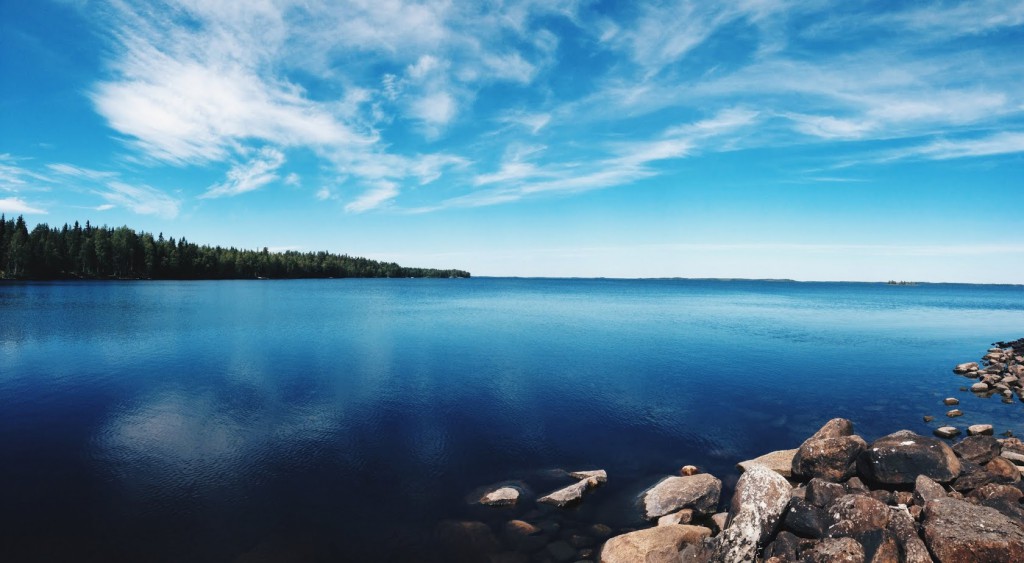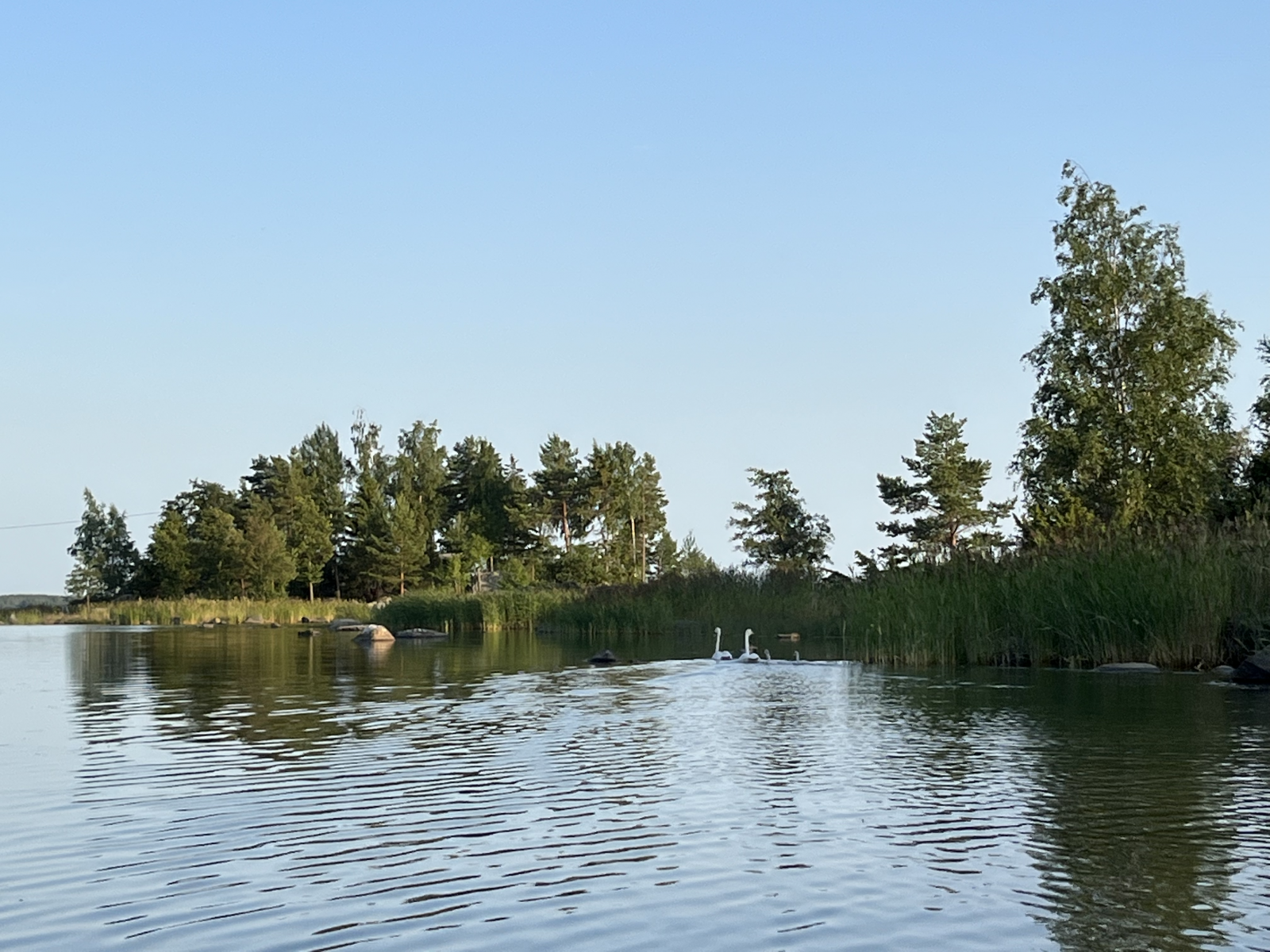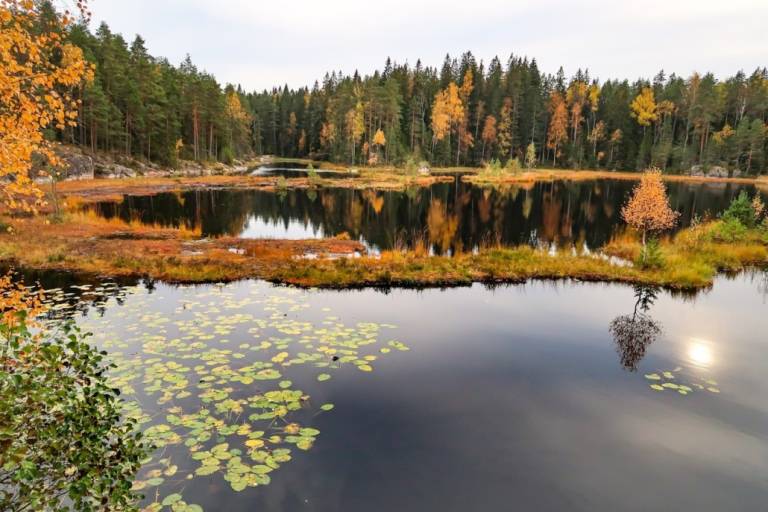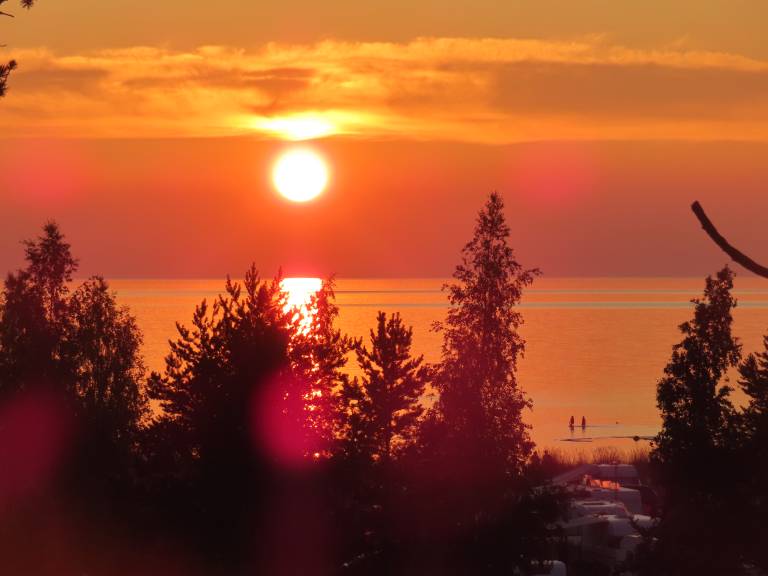When thinking of Finland, images of nature, saunas, and people often come to mind. As a Chinese living and studying in Finland, I didn’t know much about the country before I arrived. All I knew was that it is located in Northern Europe, renowned for Nokia phones, and places a high value on well-being. Additionally, it is the birthplace of the sauna. In this blog post, I will explore “Finnishness” and delve into Finnish culture from my perspective.
Finland’s breathtaking landscapes, vast forests, and numerous lakes are significant aspects of Finnishness. The appreciation and enjoyment of nature are deeply rooted in the Finnish people, as they view nature as the source of life. Finns love outdoor activities such as hiking, fishing, skiing, and berry or mushroom picking. They also enjoy staying in Mökki (summer cottages), all of which highlight the importance of nature in Finns’ lives.
Saunas have a special place in Finnish culture and are considered spaces for relaxation and social bonding. According to Visit Finland, there are over three million saunas in Finland, even though the population is 5.5 million. In the sauna, water is poured over hot stones to heat the air, creating a hot and steamy environment that promotes physical and mental well-being. The experience is incredible. Exploring different types of saunas can provide rather different experiences. Have you ever tried swimming in a frozen lake after a sauna in the snowy winter?
The Finnish education system is internationally known for its high standards, and emphasis on creativity, critical thinking, and practical skills. Teachers in Finland receive highly advanced training, and education is student-centred. One example of this is where I am studying – Proakatemia. There are no regular lectures; instead, experienced coaches provide coaching and guidance. The education system values team learning, knowledge sharing, innovation, and team leadership. It provides a safe environment that encourages students to pursue their dreams.
What I’m discussing here may only represent a small part of Finnishness. It is a multi-faceted concept that includes a harmonious relationship with nature, a resilient spirit, and much more. These unique identities have shaped Finland into a peaceful, well-educated, and well-governed country. I am gradually understanding why Finland has been ranked multiple times as the happiest country in the world.





Comments